In 2008 the company went into the guitar manufacturing business by offering the Moog Guitar. This is not your father’s guitar. As I have mentioned in the past, many players have strived to make the guitar sound like anything other than a guitar. The Moog Guitar fulfills this goal.
Designed by Paul Vo, the Moog guitar was inspired by Vo’s love of Jimi Hendrix’s’ sound and style.
The guitars secret is its ability to send energy into the strings to allow for infinite note sustain. It can also pull the energy away from the strings to allow for a staccato sound. This technology allows the player the ability to sustain all six strings at once.
An added feature, the harmonic blend control, allows the modification of the instruments sonic qualities. The added filter control has the ability to control the resonance of the instruments output.
 One of the secrets of the Moog Guitar’s sound is that the customized string metallurgy is designed to provide optimal tonal response to the guitars unique pickups. The guitar is outfitted with two custom Moog pickups.
One of the secrets of the Moog Guitar’s sound is that the customized string metallurgy is designed to provide optimal tonal response to the guitars unique pickups. The guitar is outfitted with two custom Moog pickups. In addition, the guitar features piezo saddles in the bridge that use piezoelectric sensors to pick up sounds acoustically and with less feedback than conventional pickups.
The Moog pickups hold the guitar's ability to control the levels of energy within each string. Within these pickups are six separate transducers that feed energy back into the strings magnetically.
Although standard strings work with the guitar, Moog provides stings with a different magnetic make-up to facilitate the guitar's ability to control string energy levels.
The pickups are designed to listen to the strings and control them, resulting in the infinite sustain. Historically, this is the first guitar in which the pickups and strings have been this interdependent.
Moog offers sets of strings in 3 different gauges and sells them in sets of 3 packs. The cost is between $35 to $40 USD.
The Moog Guitars controls consist of:
FULL SUSTAIN MODE – infinite sustain on every string, at every fret position and at any volume with power and clarity
CONTROLLED SUSTAIN MODE – allows you to play sustained single or polyphonic lines without muting technique. The Moog Guitar sustains the notes you are playing while actively muting the strings you are not playing.
MUTE MODE – removes energy from the strings, resulting in a variety of staccato articulations. The mute mode is unlike any found on any guitar in the past.
HARMONIC BLENDS –. This feature involves using a foot pedal to shift between full sustain mode and mute mode, allowing for the playing of unique harmonic sounds that would otherwise not be possible with the conventional techniques of creating natural or artificial harmonics.
MOOG FILTER – control the frequency of the built-in, resonant Moog ladder filter using the foot pedal or a CV Input.
 |
| Gibson RD Custom with Moog Electronics |
The Moog Guitar E-1 model features a double-cutaway, set-neck. It weighs around 7 pounds and is made of solid alder wood. The neck is capped with a 22 fret ebony fretboard and the headstock is set at a 7 degree angle. This guitar has a 25 ½” scale.
The headstock finish matches that of the body. The guitar comes with MIDI output and features twin custom designed Moog pickups along with Graph Tech piezo saddles in the custom bridge. The metallic parts are either finished in chrome or dark chrome. The guitar is shipped with 10- 52 gauge Moog guitar strings.
A Moog Foot Pedal Controller to control Harmonic Blend and the frequency response of the Moog Ladder Filter, Powers the Moog Electronics is included. The guitar package also comes with an external control voltage input (0 to 5VDC) for use with optional Moog accessories
The E1 model comes in red, butterscotch or black and sells for a street price of $2500 USD.
The Paul Vo model is an upscale version featuring AAAAA maple cap, a maple or swamp ash body and the ebony fretboard and has a street price of $3300.
Starting around $4000 USD, Moog’s custom shop will design the guitar of your dreams.
Moog guitars offers a lap steel model for $2900 USD. The shape of this instrument is reminiscent of a Weissenborn acoustic lap steel.



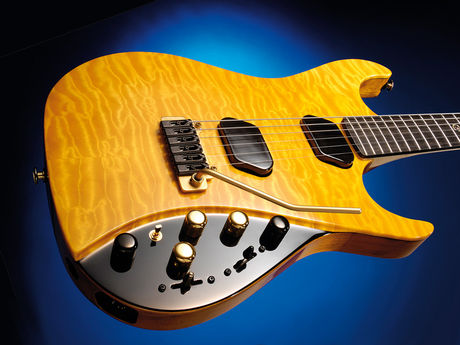
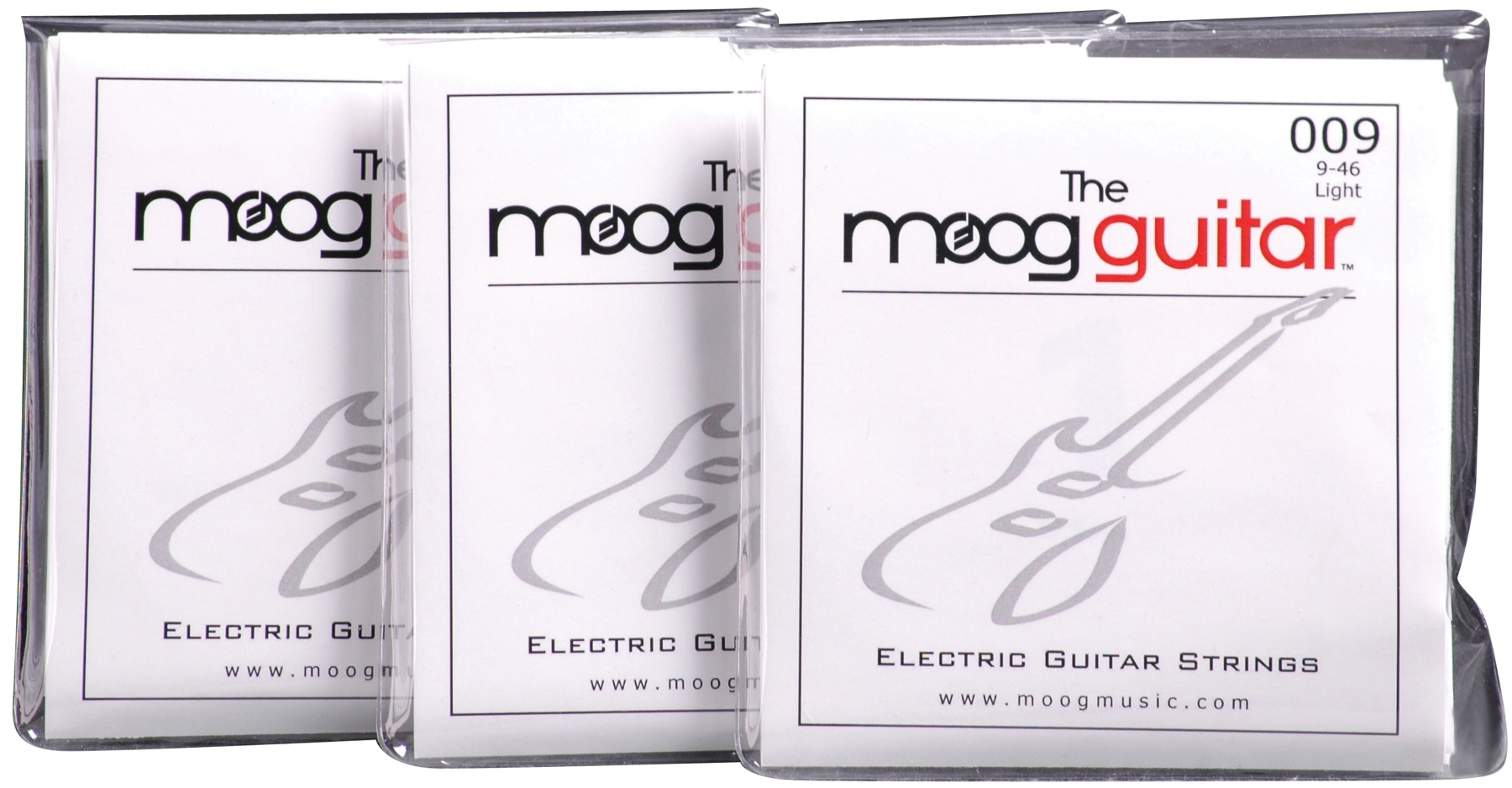

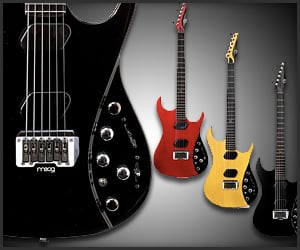

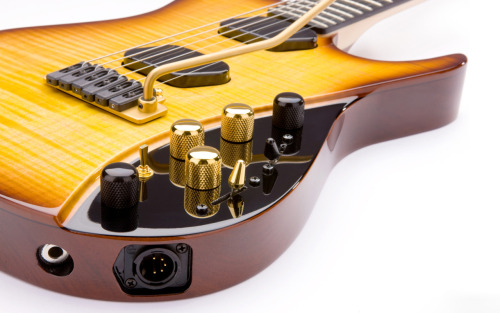


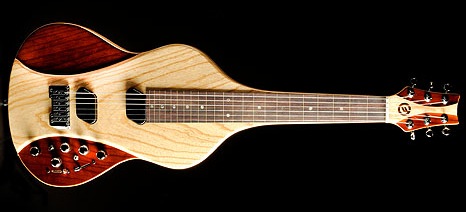
Tidak ada komentar:
Posting Komentar